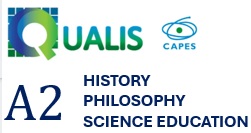Meeting Galileo
Testing the Effectiveness of an Immersive Video Game to Teach History and Philosophy of Science to Undergraduates
DOI:
https://doi.org/10.24117/2526-2270.2018.i5.10Keywords:
Gamification, Educational Video Games, Cognitive Models, History and Philosophy of Science Education, Galileo GalileiAbstract
Can video games teach students about the history and philosophy of science? This paper reports the results of a study investigating the effects of playing an educational video game on students’ knowledge of Galileo’s life and times, the nature of scientific evidence, and Aristotle’s and Galileo’s views of the cosmos. In the game, students were immersed in a computer simulation of 16th century Venice where they interacted with an avatar of Galileo and other characters. Over a period of two weeks, 71 undergraduates were exposed to lectures about Galileo and the Copernican revolution in a traditional classroom setting. However, only half of the students (i.e., experimental group) also played the game. The other half (i.e., control group) were only exposed to lectures. The knowledge of both groups was assessed at the beginning (i.e., pre-test) and end (i.e., post-test) of the two-week period. The results demonstrated objective improvements in knowledge for the experimental group while the control group showed virtually no change. Implications of these findings for teaching and learning the history and philosophy of science are discussed.
Downloads
Published
Issue
Section
License
Copyright (c) 2018 Logan L. Watts, Peter Barker

This work is licensed under a Creative Commons Attribution 4.0 International License.












